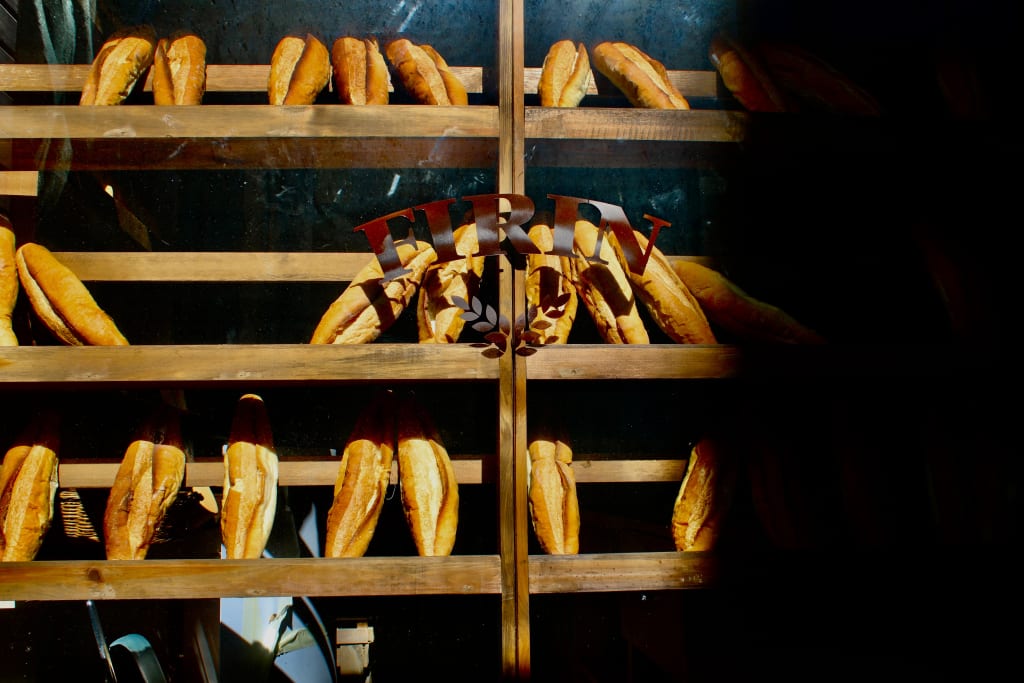From Ancient Offerings to Modern Staples: A Brief History of Bread and its Significance to Human Society
Exploring the Evolution of Bread-Making Techniques and the Cultural Importance of Bread Around the World.

Bread has been a staple food in human history for thousands of years, with evidence of bread-making dating back to ancient civilizations such as Egypt and Mesopotamia. In this article, we will explore the history of bread and its significance to human society.
The origins of bread-making can be traced back to the Neolithic era, around 10,000 BC, when humans began cultivating wheat and other grains. The first breads were likely simple flatbreads, made by mixing ground grains with water and cooking them on hot stones or in primitive ovens. As agricultural techniques improved and trade networks expanded, bread-making became more sophisticated, with the development of leavening agents such as sourdough and yeast.
In ancient Egypt, bread was considered a sacred food and was often used as an offering to the gods. The Egyptians developed a variety of breads, including the famous flatbread known as "aish baladi," which is still a popular staple in Egypt today. Bread-making was also an important industry in ancient Rome, where bakers were organized into guilds and bread was often distributed to the poor as a form of welfare.
During the Middle Ages, bread became a symbol of social status, with different types of breads being associated with different classes of people. The wealthy ate white bread made from finely sifted flour, while the poor ate coarse bread made from cheaper grains such as rye or barley. Bakers were subject to strict regulations and were often punished for selling underweight loaves or using subpar ingredients.
In the 18th and 19th centuries, the Industrial Revolution brought about significant changes in bread-making. The invention of the steam engine and the mechanization of mills allowed for the mass production of flour, making bread more affordable and accessible to the general population. However, this also led to concerns about the quality and safety of bread, as unscrupulous bakers sometimes added harmful substances such as alum or chalk to their dough to increase its volume.
Today, bread is a ubiquitous food that is enjoyed in many different forms around the world. From crusty baguettes in France to soft naan in India, bread plays a vital role in many cultural and culinary traditions. However, there is also growing concern about the health impacts of consuming too much-processed bread, which has been linked to a variety of health problems such as obesity, diabetes, and heart disease.
Bread has been a staple food in human society for thousands of years, playing a significant role in shaping our history and culture. Its evolution from simple flatbreads to the diverse and complex breads of today mirrors the progression of human civilization, reflecting advancements in agriculture, technology, and social structures.
Throughout history, bread has taken on a variety of meanings and functions. In ancient Egypt, it was a sacred food, used in religious ceremonies and as an offering to the gods. In medieval Europe, bread was a symbol of social status, with different types of breads associated with different classes of people. In modern times, bread has become a ubiquitous food that is enjoyed in many different forms around the world, from traditional sourdough loaves to trendy avocado toast.
The process of making bread has also evolved over time, from simple flatbreads made with only water and grain to the use of leavening agents such as yeast and sourdough. The Industrial Revolution brought about further changes, with the mechanization of mills allowing for mass production of flour and making bread more affordable and accessible to the general population.
However, with the convenience and availability of processed bread comes the concern about its health impacts. Studies have linked consuming too much-processed bread to various health problems, such as obesity, diabetes, and heart disease. As we look towards the future, it is important to find ways to balance our love of bread with our desire for healthy, sustainable diets.
Despite these concerns, bread continues to play a significant role in human culture and society. It remains a symbol of tradition, community, and nourishment, and is an essential part of many cultural and culinary traditions around the world. From ancient offerings to modern staples, the story of bread is a fascinating journey through human history and the evolution of our relationship with food.
About the Creator
Enjoyed the story? Support the Creator.
Subscribe for free to receive all their stories in your feed. You could also pledge your support or give them a one-off tip, letting them know you appreciate their work.






Comments
There are no comments for this story
Be the first to respond and start the conversation.